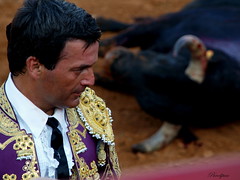 In the May 14, 2011, edition of The Wall Street Journal, Roy Blount Jr., (Alphabetter Juice: or, The Joy of Text) talks about -- and exhibits! -- the delight one can find in playing with words
In the May 14, 2011, edition of The Wall Street Journal, Roy Blount Jr., (Alphabetter Juice: or, The Joy of Text) talks about -- and exhibits! -- the delight one can find in playing with words When we write, we work with what? Words.Read the whole thing. Right now I'm in the midst of multiple first drafts, facing two stories still in the wow-I've-seen-more-organization-in-a-post-party-frathouse state while knowing I have a third I really need to start if I want to make a particular deadline. To put it mildly, I dislike first drafts. Manuscripts that have rounded the fifth or sixth revision? Now those are a lot easier to get excited about, when stories feel more finished than not and crippling self-doubt doesn't threaten with every other sentence. But perhaps Blount offers an alternative to the grin-and-bear-it approach to early drafts -- play. Even bad writing isn't a chore when we're having fun (although Blount wisely urges us not to get to infatuated with our own diction: "I like a writer who gets off on words, but not one who gets off on getting off on words. That writer is out to impress more than to express").
Wow -- nine straight words beginning with W. "Just virtuosity," as the card shark played by Charles Coburn says in "The Lady Eve" after showing off an especially nifty false shuffle. "You don't really need it."
What I was doing was playing around. Anyone who undertakes the literary grind had better like playing around with words. Letters, even: W, for example, though L and K are catchier. L leads you in and K connects. Why do you think young people say "like" so much?
Somebody informed me recently that the key to every art, from writing to gardening to sculpture, is creativity. I beg to differ. Sculpture, I told this person (although sculpture is something I know nothing about), is for people who like playing around with granite or automobile bumpers or quantities of chewed gum or whatever. Gardening is for people who like playing around with bulbs and dirt. Writing is for people who like playing around with words -- like "bulbs" and, let's say, "loam."
(Picture: CC 2008 by purolipan)


2 comments:
I have an instructor who often uses medieval exercises when teaching undergrads. They have been more successful than she expected, and for just this reason. The medieval attitude was that early on, kids are taught to play with language. Their exercises involved doing things like beginning three sentences with the same word, ending three sentences with the same word, then writing three more sentences that begin and end with the same word.
What looked like drudgery quickly became fun in the classroom. When its task is so arbitrary and constricting, the human mind feels liberated to tinker with the formula, show off, and above all play.
You see, that's one of the reasons why I love strong form. Arbitrary limitations both constrain and free, ironically. Gerard Manley Hopkins' insistance on very specific rhythms in his poems and lots of internal rhymes makes his work so much more beautiful in my mind.
Post a Comment